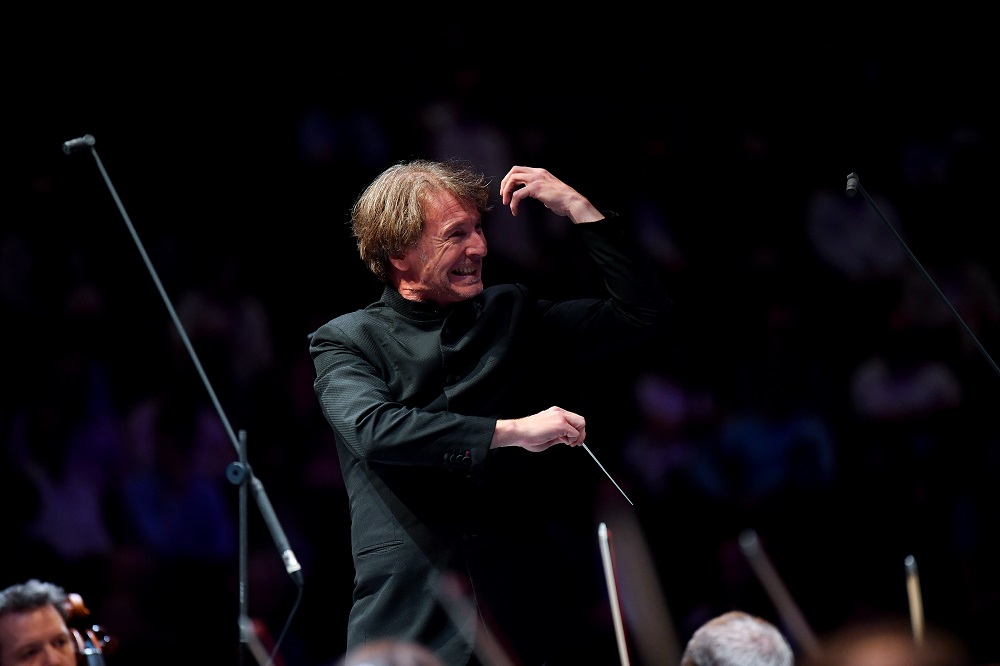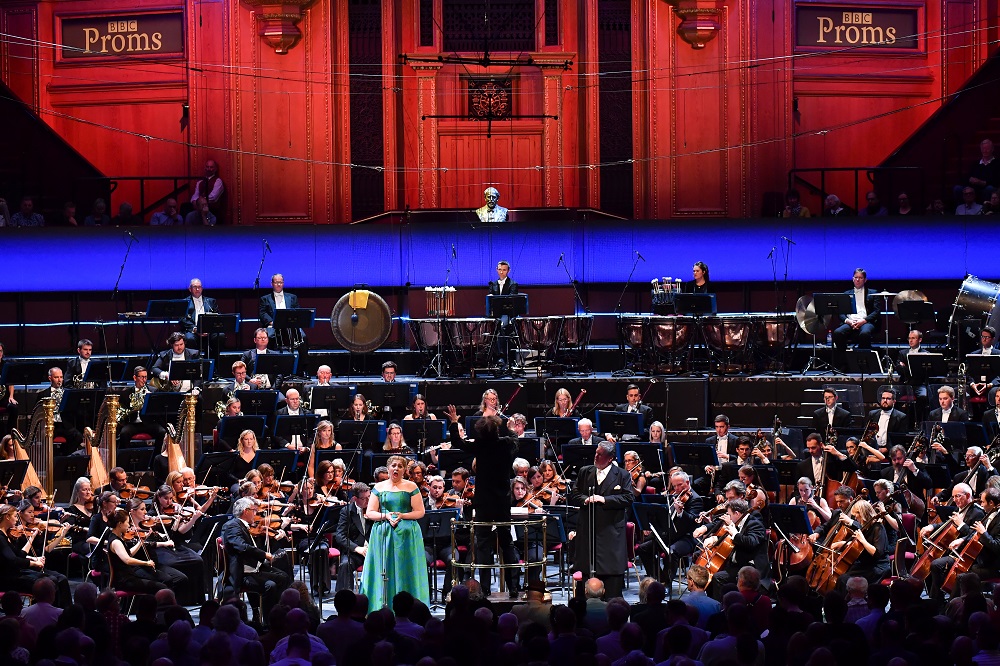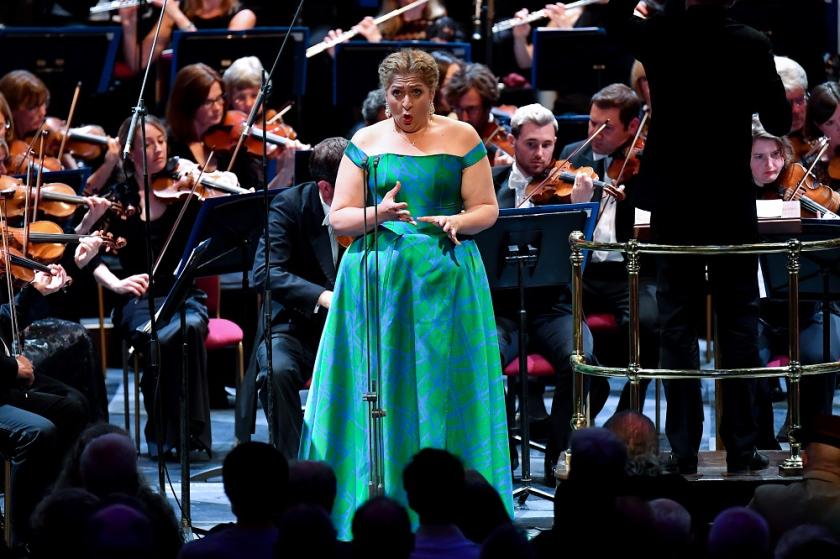Known as "Heldenmommy" to her fans on Twitter, Christine Goerke is a Wagner soprano of and for our time. You won’t find her recordings on the major-label behemoths but her reputation is built on two decades of producing the goods night after night at opera houses across the US, notably the Metropolitan in New York. On the other side of the Atlantic, her Brünnhilde has filled the Usher Hall through the course of a four-year Ring cycle at the Edinburgh Festival.
Having seen the world end north of the border 10 days ago, Goerke reprised the Immolation Scene to bring a Wagner Night at the Proms to a blazing close. Always glowing and unforced in tone, rounding off each phrase while soaring over a full-strength RPO, hers is a Brünnhilde that defies stereotypes of the role and of “Wagnerian” soprano singing in general. Concert conditions elicited from her an air of unshakeable assurance that a complete performance or full staging might fruitfully subvert; there was no doubting the ardency of this fallen warrior’s passion for her man in the Prologue’s Love Duet, nor yet the identity of who, in the final analysis, was wearing the leather trousers for all the complementary vigour of Stephen Gould’s Siegfried.  Music director of the Dutch National Opera since 2011, Marc Albrecht (pictured above) has an unassuming way with the grandest statements of German Romanticism – he made his debut at the Proms with a compelling Ein Heldenleben in 2006 – and he coaxed some outstanding playing from the Royal Philharmonic Orchestra: I have not heard them on such form in years.
Music director of the Dutch National Opera since 2011, Marc Albrecht (pictured above) has an unassuming way with the grandest statements of German Romanticism – he made his debut at the Proms with a compelling Ein Heldenleben in 2006 – and he coaxed some outstanding playing from the Royal Philharmonic Orchestra: I have not heard them on such form in years.
This was a Wagner night, and so also a night for the horns, who were led with fearless panache by John Thurgood and Diego Incertis Sanchez, but in Siegfried’s Funeral March the oboe of John Roberts also stood out for its halting poetry: the march proper had all the savage gravity one could wish for, finely poised between expression of Hagen’s gloating triumph and the hero’s hallowed memory. Concert endings of each bleeding chunk were nicely dovetailed by Albrecht to avoid the usual clunky modulations, though confusion briefly arose at the start of the Immolation Scene, and the glockenspiel from Siegfried’s Rhine Journey rather bizarrely found a part to play in the Forest Murmurs in the first half.  Albrecht had also proved himself a master of transition in the Overture to Weber’s Der Freischütz – astutely programmed as a piece that worked magic on Wagner’s imagination – and in the wild ride of Le Chausseur Maudit by Franck, a 15-minute slice of French Wagnerisme enclosing both hunt and curse which would effect Siegfried’s baleful end in Götterdämmerung.
Albrecht had also proved himself a master of transition in the Overture to Weber’s Der Freischütz – astutely programmed as a piece that worked magic on Wagner’s imagination – and in the wild ride of Le Chausseur Maudit by Franck, a 15-minute slice of French Wagnerisme enclosing both hunt and curse which would effect Siegfried’s baleful end in Götterdämmerung.













Add comment